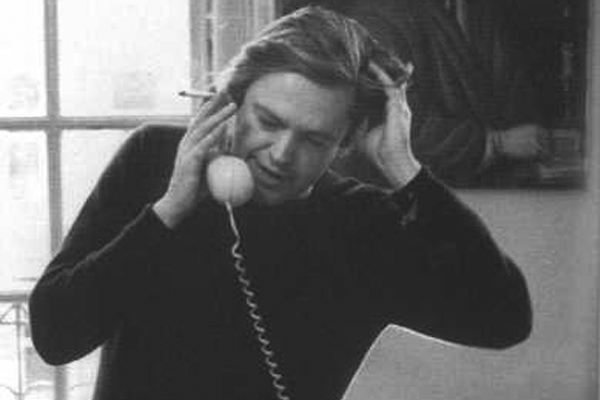I was wondering what to write about this week when I suddenly realised that exactly 40 years ago this Saturday I became editor of this magazine. Despite eventually getting the sack, I hung onto the job for nine years, from 1975 to 1984, which is still the longest that anyone has had it since Wilson Harris ended his 21-year tenure in 1953. The Spectator has had 15 editors since him, but none apart from myself has lasted for much more than six years. Fraser Nelson, however, looks set to outlast us all.
I am surprised how little I can remember of those years (or perhaps I shouldn’t be surprised, given my drinking habits at the time), but I will never forget how they started. Henry (now ‘Sir Henry’) Keswick, back from 14 years in Hong Kong in a hereditary role as head of the great trading house of Jardine Matheson, bought The Spectator as a way of re-establishing himself in Britain and possibly helping him to get selected as a Conservative candidate for a seat in Parliament.
If he failed in this second objective, it was probably because he chose as editor someone with no experience of politics and without any useful political connections. That was me; and the only reason he chose me, Max Hastings wrote at the time in the Evening Standard, was that I was ‘the only journalist he knew’. I had known Henry since childhood; his father was my father’s best friend; his mother was my godmother; we had been at both school and university together. So, yes, he knew me; but it was nevertheless bold of him to entrust the loss-making Spectator to someone so unqualified for the task.
I had been a journalist for the previous 11 years, nearly all of them at Reuters, most of which I had spent abroad as a correspondent, first in Paris and then Rome. But I wasn’t just ignorant of British politics; I knew nothing of literary London or of the people who frequented it. I had read the New Statesman a bit in my youth, but never The Spectator. I had never voted Conservative. Nobody but Henry could possibly have chosen me for the job.
I also had serious doubts about accepting it. When I decided to do it, it was basically for two reasons. The first was that I thought that even I could make it more acceptable to its natural readership. It was visually crude and had become, prior to the in-out referendum on Europe of June, 1975, a strident, one-issue journal, devoted almost exclusively to campaigning in favour of withdrawal from the European Economic Community. It was performing a useful function, for it was almost alone in the British media in advocating this; but I felt that its decline in circulation — then down to a miserable 13,000 or less — was largely attributable to its gracelessness and its hectoring manner. It is as if the current Spectator, facing another referendum on Europe in the next couple of years, were to be a sort of house organ of Ukip.
My second reason was my reverence for Harold Ross, the founding editor in the 1920s of the New Yorker, the greatest magazine to be created in the 20th century. I would not dream of comparing myself to him, who was a sort of genius, in any respect except one: he, like me, had no literary background and had previously been no more than a news reporter on various American newspapers before becoming editor of an army journal for US servicemen in France during the first world war. But his unashamed ignorance of almost everything (most famously ‘Moby Dick. Was that the man or the whale?’) led him to query anything in an article that he didn’t know or understand, and this is something that I think editors should never be embarrassed to do. It’s a service to similarly ill-informed readers, and it’s amazing what waffle it can expose.
Anyway, I spent nine years losing poor old Henry substantial sums of money until even he, patient though he was, got fed up and sold the magazine. He is, however, the person who saved it. We did eventually turn it round, but with the speed of a giant oil tanker changing course. If he had been less patient, it might have died. And the recovery was not only slow, but also modest. By the time I left the circulation was still only about 20,000, much less than a third of what it is now. We have my successors to thank for making it the success story it is today.
Got something to add? Join the discussion and comment below.
Get 10 issues for just $10
Subscribe to The Spectator Australia today for the next 10 magazine issues, plus full online access, for just $10.
You might disagree with half of it, but you’ll enjoy reading all of it. Try your first month for free, then just $2 a week for the remainder of your first year.













Comments
Don't miss out
Join the conversation with other Spectator Australia readers. Subscribe to leave a comment.
SUBSCRIBEAlready a subscriber? Log in